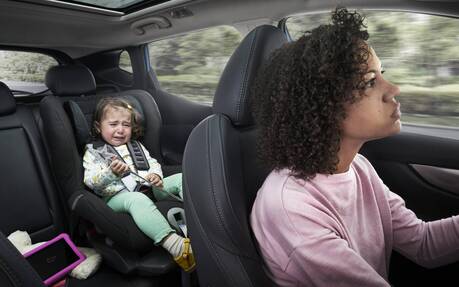10 Useful Tips to Prevent Road Rage
Road rage is a growing problem and the COVID-19 pandemic is not helping. Why? Because a whole lot of people keep enduring stress and frustration with all the lockdowns, health-related restrictions, job losses and economic uncertainty, not to mention major changes in our daily routines especially at home.
Even though there are fewer cars on the road, dangerous behaviour is on the rise as some reckless drivers want to seize the opportunity to regain some type of freedom. As for rush hour and road work, they’re not going anywhere.
- Also: Study: Drivers in Their 70s Have Lower Crash Rates Than Those Aged 35-54
- Also: Women are More Seriously Injured in Car Crashes, Study Shows
So, what can you do to stay calm and avoid road rage? Here are a few useful tips:

1. Give yourself more time
Road rage often comes from feeling stressed and being in a hurry. Allow extra time for your various trips and commutes so you can slow down and be more in control behind the wheel.
2. Avoid tailgating and cutting traffic
Did you know that 30 percent of road rage incidents that lead to physical aggression first start with tailgating and cutting traffic? If you are patient and use your turn signals, a courteous driver will clear the way for you faster than you think.
3. Keep your cool and show restraint
Each commute can be a source of frustration and conflict, but try to keep your cool by not using the horn excessively or making all kinds of gestures. Instead, take deep breaths, which will slow your heart rate and relieve some tension.
4. Use your brain
You should always listen to the voice of reason and not let your emotions cloud your judgement. Braking quickly to upset the tailgating driver might make you feel better, but it could lead to an accident. If you are following a slow driver, check the speed limit—maybe you are speeding. And remember that the slow driver in front of you may be a teenager or someone from out of town who isn’t familiar with the area.
5. Ignore bad drivers
If someone else’s driving doesn’t meet your standards, just move away. Don’t try to teach them a lesson or make them aware of their “bad” driving by copying their moves. Police is there for a reason. Your responsibility is to keep yourself and your passengers safe.
6. Resist the urge to get even
Other road users don’t know you and you don’t know them, so it’s never personal. The context or a particular situation is what leads to negative feelings towards other people. Don’t add fuel to the fire or try to get even with someone else. Remember that the raging person may be letting off pent-up steam from days or even years of stressful driving situations.
7. Learn to say “Thanks” and “Sorry”
Civility and good manners encourage other drivers to do the same. Acknowledge your mistakes (nobody is perfect, after all) and apologize through eye contact or a quick gesture. This can defuse a hot situation and avoid a direct confrontation.
8. Relax and change your mind
Create a relaxing atmosphere inside your car by listening to soft music and maintaining a comfortable temperature. Stuck in traffic? There is not much you can do besides changing your mind. Make the most of these moments in the car by listening to audio books or educational material. However, surfing the web on your phone or reading a book is not safe at it takes your eyes off the road.
9. Pull over if necessary
If your passengers are too loud and prevent you from focusing on the road, or if your kids are fighting or making a mess in the back seat, don’t pile up your frustration inside. Pull over and take time to restore order. You’re the driver, so you’re the boss.
10. Protect yourself
If you feel seriously threatened by another driver, stop your car, lock the doors and call 9-1-1. Alternatively, find the nearest police station. If the raging person steps out of their vehicle and confronts you, repeatedly honking might prompt them to move away. It will also alert bystanders that could lend you a hand.
